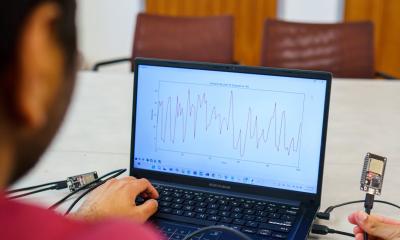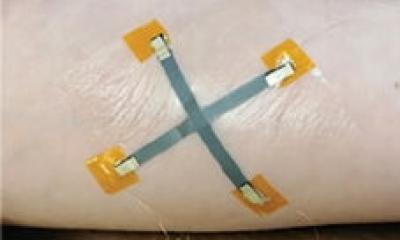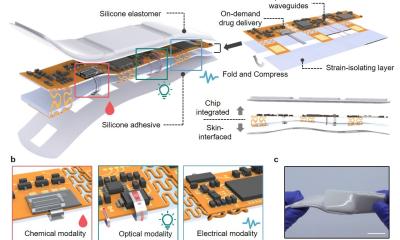Futures: HIV self-monitoring
HIV/AIDS has reached pandemic proportions. 35 million people are infected. Given the situation of hard pressed general practitioners (GPs) today, as well as geographical and other difficulties (as in Africa, for example), a new device that will enable HIV patients to monitor their own health and the effectiveness of treatments, without visiting their doctors so often, is indeed promising.
Thanks to a £2 million Nanotechnology for Healthcare grant from the Engineering and Physical Sciences Research Council’s Grand Challenge Competition, a joint venture is underway, involving researchers at the London Centre for Nanotechnology (LCN) with research partners at the University College London Medical Molecular Virology (UCL/MMV) Centre and Imperial College London, and the Royal Free Hampstead NHS Trust, Cambridge Medical Innovations, Sphere Medical Ltd and Bionano Consulting. Their joint research is to draw together biomedical engineers, physicists, chemists, virologists and clinicians to create a prototype hand-held device for clinical trials. It is expected to work similarly to devices used by diabetics check insulin levels (sampling a finger prick of blood), and serve as an early warning system to tell patients to seek medical help if the virus is resisting anti-retroviral treatments. It could also be of considerable benefit to doctors in developing countries urgently needing quick and affordable ways to diagnose and monitor patients.
The device uses nanoscopic mechanical sensors, called microcantilever arrays to measure HIV and other protein markers that indicate an increase in the viral level and the body’s responses. ‘The microcantilever arrays are each coated with substances that stick to the HIV and other proteins, which are markers associated with disease progression,’ explained UCL lead investigator Dr Rachel McKendry, who is a Reader in Biomedical Nanoscience at the LCN. ‘Accommodating these markers causes the highly sensitive sensors to bend like a diving board and this bend indicates the level of the virus in the body. We have used microcantilever arrays to investigate drug resistance in super bugs, such as MRSA, and are excited by the opportunity to extend this approach to detecting HIV markers.’
The device displays on-screen advice messages for patients, e.g. patients may read ‘You are fine today’ if levels of the virus are low or ‘Have you booked a GP visit this week?’ if the virus level has increased. ‘If patients neglect to take their treatments, or need prompting to see their GP, the device will provide a simple way to let them know. It will really empower HIV patients to keep a close eye on their health and their treatments,’ explained NHS consultant Dr Anna-Maria Goretti, a co-investigator based at the Royal Free Hospital.
Robin Weiss, Professor of Viral Oncology at UCL, whose pioneering work in identifying the receptor for HIV has deepened our understanding of HIV/AIDS, added: ‘One of the principal advantages of the proposed device is its capacity to monitor viral and immunological markers on a single chip without the need for time consuming analysis that requires specialist laboratories.’
‘This project combines technology from semiconductor processing with modern biology to produce a unique piece of kit for tracking how HIV develops in individual patients, and help them to keep a close eye on their own health,’ added Dr Yeong-Ah Soh, ICL lecturer in Materials Science, who is developing methods to fabricate the microcantilever arrays.
The grant will run for three years; but if the resulting prototype is effective, additional funding has been promised.
01.07.2009





